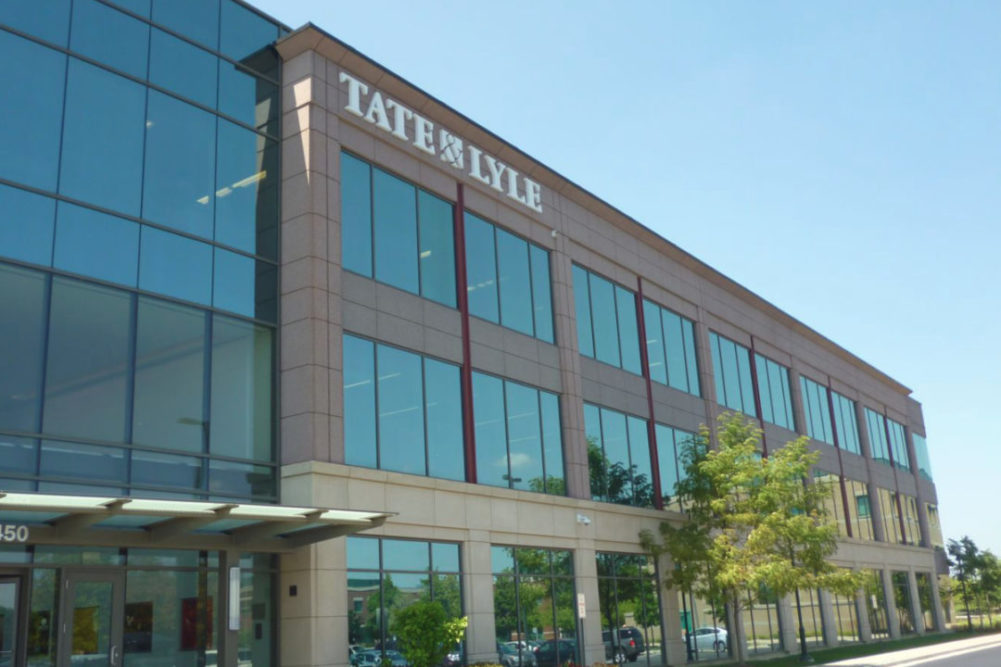LONDON, ENGLAND — Questions about the future of Tate & Lyle PLC arose on April 25 when the London-based company said it was exploring the potential to separate its Food & Beverage Solutions and Primary Products businesses. Nick Hampton, chief executive officer of Tate & Lyle, gave more detail in a May 27 earnings call to discuss fiscal-year results.
Discussions with potential partners for Primary Products are ongoing, he said.
“And there can be no certainty that the transaction will be completed,” he said. “We will make further announcements when appropriate.”
If concluded, the transaction would create two separate businesses, Hampton added. One business, Tate & Lyle, would be a global leader in sweetening, mouthfeel and fortification. Primary Products would be the other business, a leader in plant-based products for the food and industrial markets with a new investor.
“It's really important for us that we find somebody who believes in the future growth potential of that business and is prepared to invest alongside us to execute the strategy that we think will drive accelerated growth,” Hampton said of a potential new investor.
Tate & Lyle during the fiscal year ended March 31 incurred £19 million ($27 million) of exceptional costs, principally for external advisers, for work performed in relation to the potential transaction.
“I mean, obviously, it’s very difficult for us to comment too much on the transaction at this point,” Hampton said. “Conversations are ongoing with interesting parties, and we’ll update the market in more detail, but what I will say, because of the nature of the proposed transaction, we’ve done a lot of preparatory work to understand the practicalities of separation, including looking at how the plants would operate under separate ownership, including looking at the kind of long-term supply agreements that would satisfy both businesses.”
Recent transactions have bolstered Tate & Lyle’s Food and Beverage Solutions segment. Tate & Lyle last November acquired the outstanding majority shareholding in Sweet Green Fields, a global stevia business.
“This acquisition brings a fully integrated stevia supply chain, including leaf sourcing and established agricultural programs as well as a dedicated production and lab facility in China,” Hampton said. “It also strengthens our sweetener platform as stevia is one of the fastest-growing low-calorie sweeteners, particularly in beverages, dairy and snacks.”
This February Tate & Lyle completed the acquisition of an 85% holding in Chaodee Modified Starch Co. Ltd., a specialty tapioca food starch business in Thailand.
“This brings us new tapioca capabilities and raw material sourcing expertise, strengthens our texturants platform and expands our customer offering in categories such as dairy, bakery and noodles,” Hampton said. “It also establishes a dedicated tapioca facility in Asia, which we intend to invest in to significantly increase capacity. As well as broadening our solutions offering, both acquisitions also help us diversify from corn. The integration process for the two businesses is proceeding well, and we’re delighted to welcome them to Tate & Lyle.”
Within Food and Beverage Solutions, Hampton said the company is exploring ways to add capacity for allulose, a sweetener used to reduce sugar in food and beverage products.
“We have seen an incredibly strong pickup in interest in allulose in the markets where it has received regulatory approval,” he said. “That’s a really good thing. It’s been quite a slow process of building conviction in allulose. We’re really seeing that explode in the near term, and I think that’s a reflection of some of the trends we’re seeing in the world around us. As a result, we’ve got lots more customers working with us on it and it’s becoming more important to our business.”
Companywide, Tate & Lyle’s operating profit for the fiscal year decreased 3% to £287 million ($407 million) from £296 million in the previous fiscal year. Adjusted operating profit rose 2% to £339 million. Revenue dipped 3% to £2.81 billion ($3.98 billion) from £2.88 billion.
Within Food and Beverage Solutions, adjusted operating profit rose 10% to £177 million from £162 million in the previous fiscal year. Revenue of £970 million was up 6%. Stronger customer demand for ingredients used in packaged and shelf-stable foods consumed at home more than offset reduced demand for ingredients used in food and drink consumed out of the home. Revenue from new products, meaning those launched in the past seven years, increased by 21% in constant currency to £133 million, representing 14% of Food and Beverage Solutions revenue, up from 12% in the prior year. Revenue in the sucralose segment decreased by 2% in constant currency to £151 million, reflecting customer mix and pricing pressure.
COVID-19 had a negative impact on Primary Products. Adjusted operating profit slipped by 1% to £158 million. Revenue decreased 2% in constant currency to £1.69 billion, reflecting lower volume mitigated by improved mix and higher commodities revenues where co-product prices were higher. Within Primary Products, sweetener volume was 7% lower, reflecting reduced consumption out of home.




